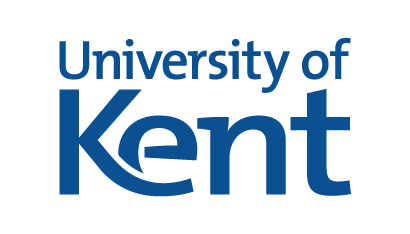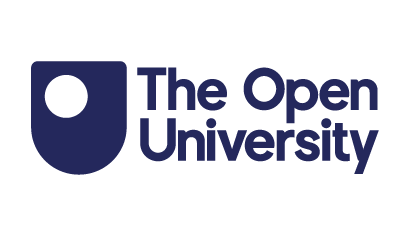What makes a good teacher?
Discover the most important skills and characteristics for teachers in this handy 10-point list.

What does it mean to be a good teacher today? With new educational tools, technologies, and training emerging every single year, it can seem like the teaching profession is constantly changing. But at FutureLearn, we believe there are certain fundamental qualities that all teachers need, whatever the context.
In this handy 10-point list, we guide you through the most important skills and characteristics for the teaching profession. Whether you’re an aspiring teacher looking to sound out your suitability, or a current trainee hoping to hone your teaching practice, we’ll provide the knowledge you need for your career.
1. Passion for teaching
It may sound obvious but, like all the best professionals, teachers need to be passionate about their job.
An exceptional teacher is driven by a deep love of their subject matter and a commitment to passing on the knowledge they have about it. Their enthusiasm for both should be contagious.
2. Communication skills
Good teaching relies on effective communication. Teachers need to be able to convey often complex information and concepts in such a way that they can be understood by all kinds of learners.
To do that, they should create clear and engaging learning content using a wide variety of communication channels, including verbal, written, visual and digital formats.
3. Patience and understanding
Students have diverse needs, learn at varying paces, and can be demanding of teachers’ time and attention. Managing all of this requires patience and understanding.
Teachers need to be able to anticipate and understand their students’ needs, patiently guiding them through challenges and setbacks, while fostering a supportive learning environment.
4. Empathy
In order to understand and be patient with their students, teachers also need a high degree of empathy. They establish emotional connections by empathising with students’ issues, struggles, and aspirations.
This emotional connection creates a safe and nurturing space for learning, in which students feel valued, supported, and encouraged to achieve.
4. Adaptability
With educational research advancing rapidly, and new technologies transforming education, teachers need to be able to adapt to change and embrace new approaches.
A good teacher should be willing to keep up with new developments in the sector, and try out new methods, tools and techniques to enhance their students’ learning.
6. Subject knowledge
Beyond soft skills, teachers also need expertise in their chosen subject. They must be able to provide accurate and up-to-date information that will equip students with a deep understanding of the curriculum material.
They should also be willing to research their topic and continue expanding their expertise. A teacher’s extensive knowledge is what inspires their students to explore further themselves.
7. Encouragement and motivation
A teacher’s ultimate goal is to enable students to teach themselves. To do that, they need to provide encouragement and motivation.
Through encouragement and positive reinforcement, teachers give their students the confidence, independence, and resilience they need to set new goals and aim higher in their learning.
8. Organisation
Organisation is a cornerstone of effective teaching. A good teacher keeps their lessons structured, marks students work clearly and punctually, and ensures students can easily access information about learning objectives and assessments.
The more organised a teacher is, the more organised their students will be.
9. Digital skills
The days of chalk and blackboard are over. Teachers now have a host of digital learning tools and technologies at their disposal. Digital skills are crucial if teachers are to stay on top of developments in the sector and ensure their lessons are as engaging as possible.
As we learnt from the COVID-19 pandemic, online teaching can also help to overcome unforeseen challenges in education.
10. Commitment to lifelong learning
Last but not least, at FutureLearn, we firmly believe in lifelong learning. That applies both to teachers, who need continuing professional development to add to their training toolkit and adapt to new trends and approaches, and to students, who carry on learning far beyond their time in formal education.
Understanding that education is for life, not just for the classroom, helps teachers inspire students to take ownership of their learning. It also gives teachers a reason to keep learning, researching, and seeking out new opportunities to build new skills and enhance their practice.
Become a teacher with FutureLearn
As we hope we’ve shown, teaching is one of the most fulfilling, impactful, and rewarding careers out there.
If you think you have some of the above skills and qualities, or are keen to start developing them, why not take an online course in teaching and education? We offer a wide range of courses, programmes, and degrees, designed to equip you with all the skills and attributes we’ve discussed in this article.
Browse our courses today, and start laying the groundwork for your teaching career.




Online teaching courses at FutureLearn
- The Online Educator: People and Pedagogy by The Open University
- Teacher Training: Choosing the Right PGCE for You by Coventry University
- Teaching and Assessing Core Skills by the British Council
- Introduction to Digital Education by Universiti Malaya
- Online Teaching: Accessibility and Inclusive Learning by The Open University
- Learning Through Play by Federation University
- Postgraduate Certificate in Education (PGCE) from Coventry University
- PgC Online and Distance Learning from The Open University
- MA Educational Leadership from Coventry University
- Master of Contemporary Education from academyEX












